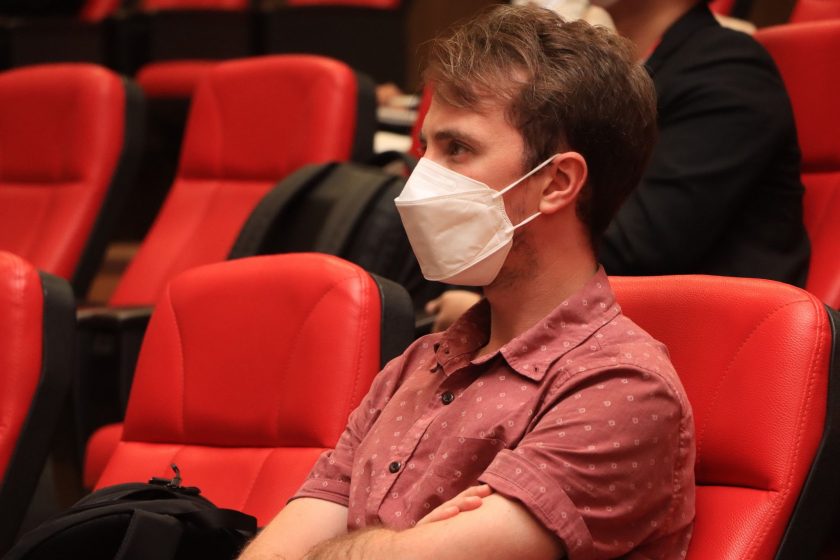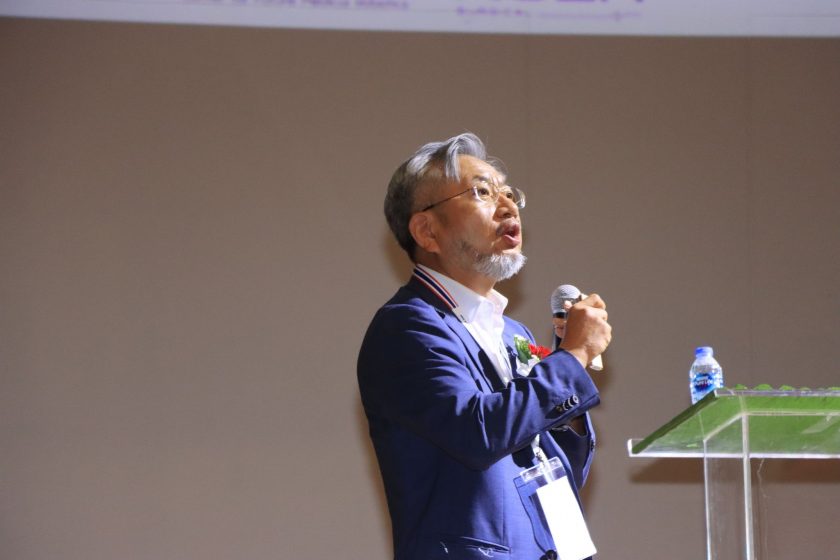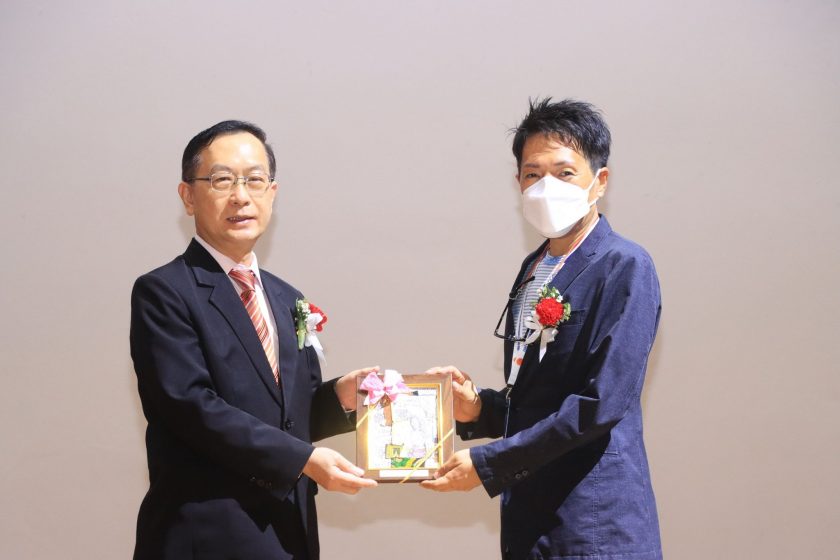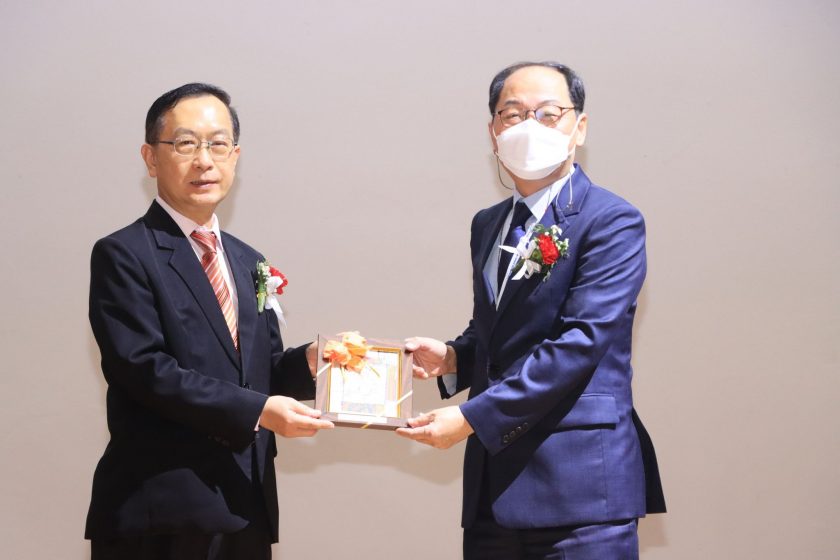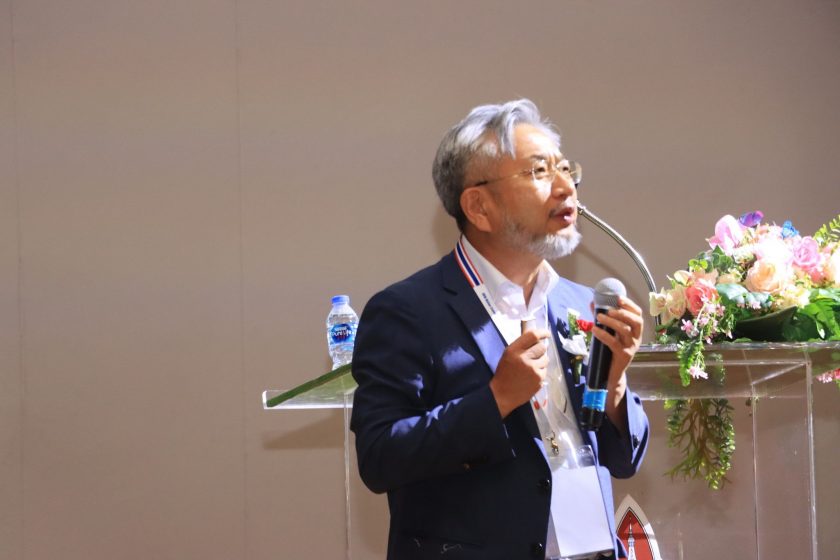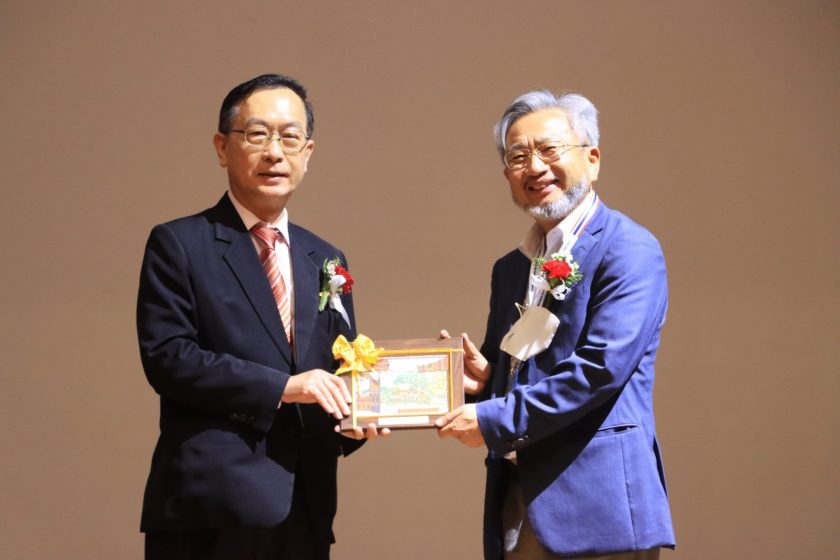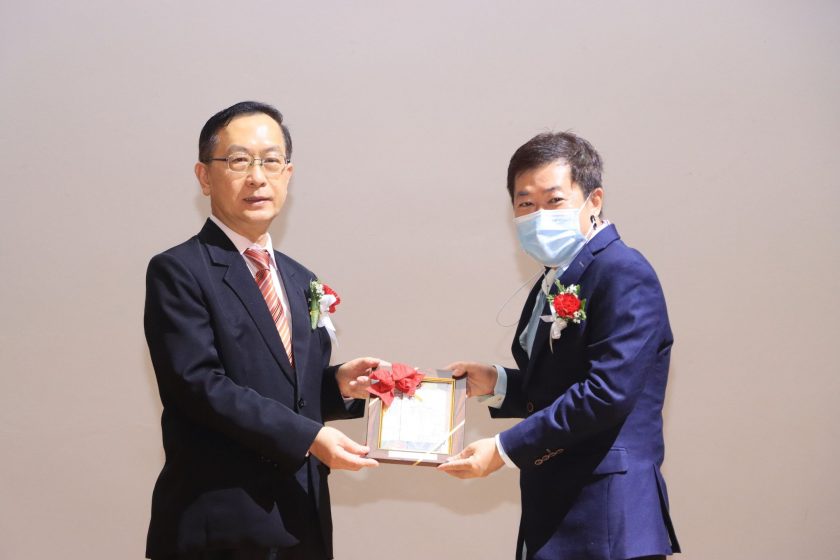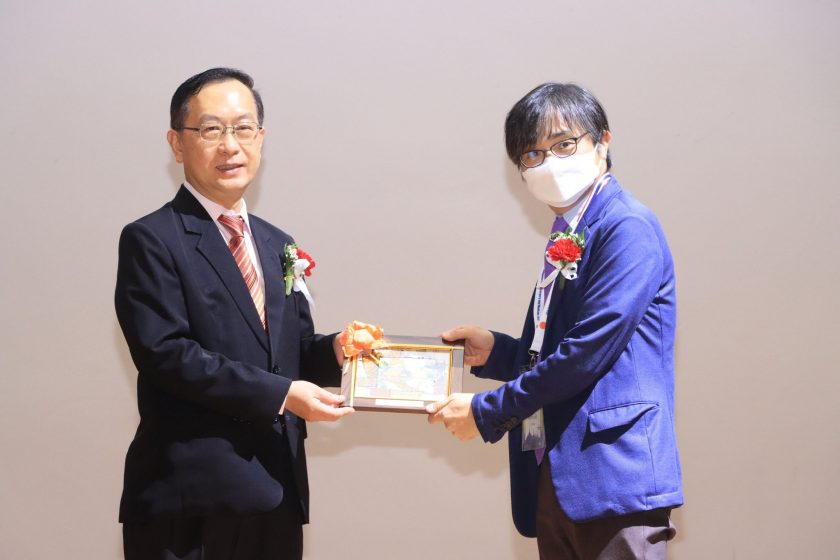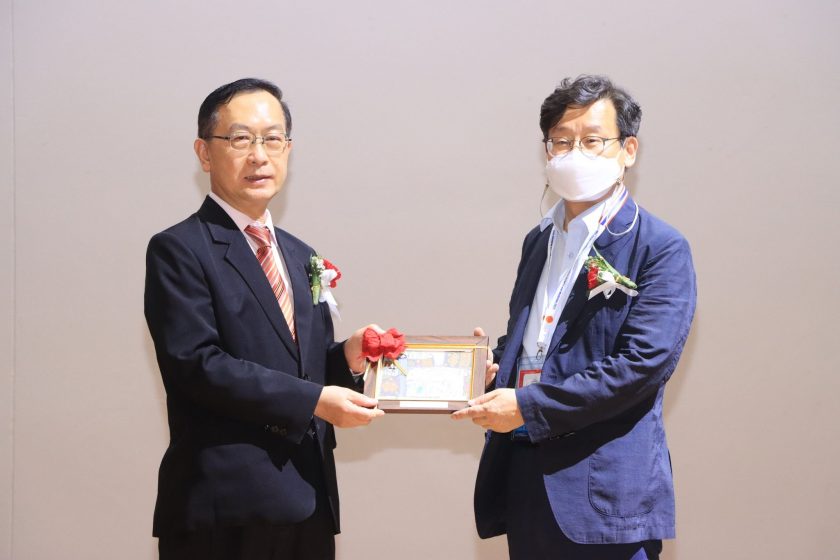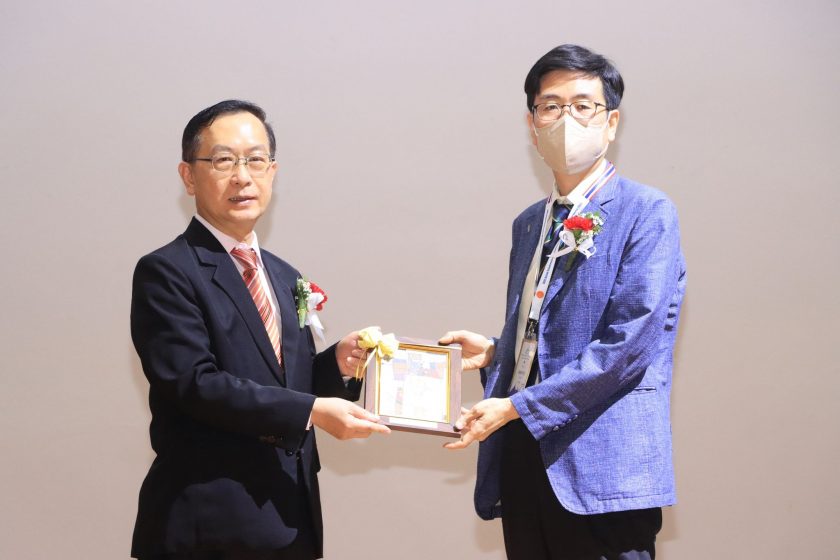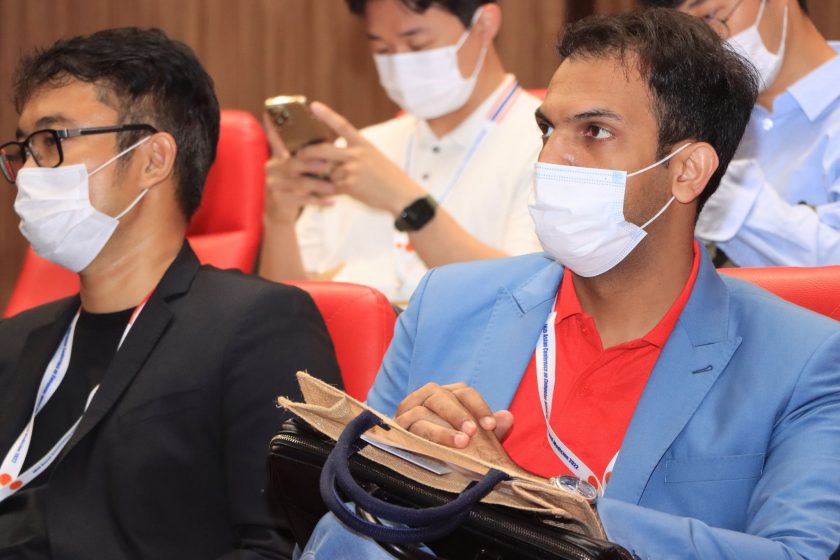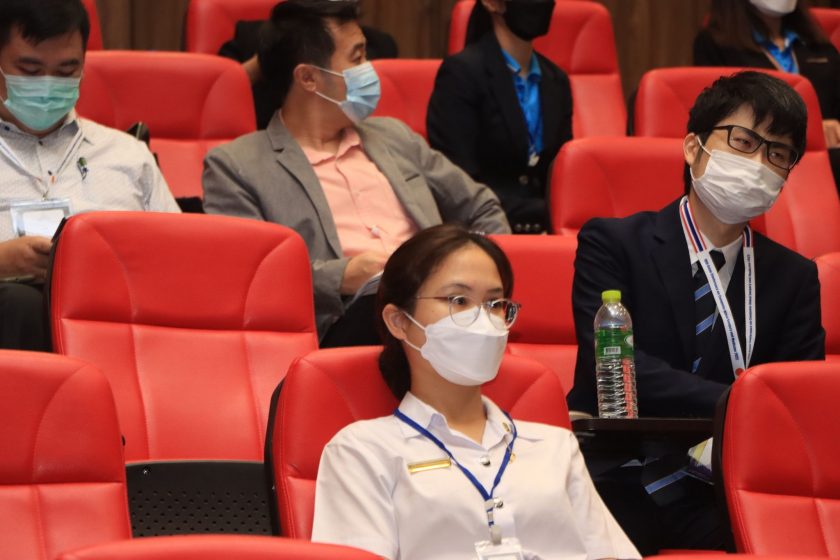Khon Kaen University cohost with the Parliament of Thailand for an international conference on Digital Health Innovation.
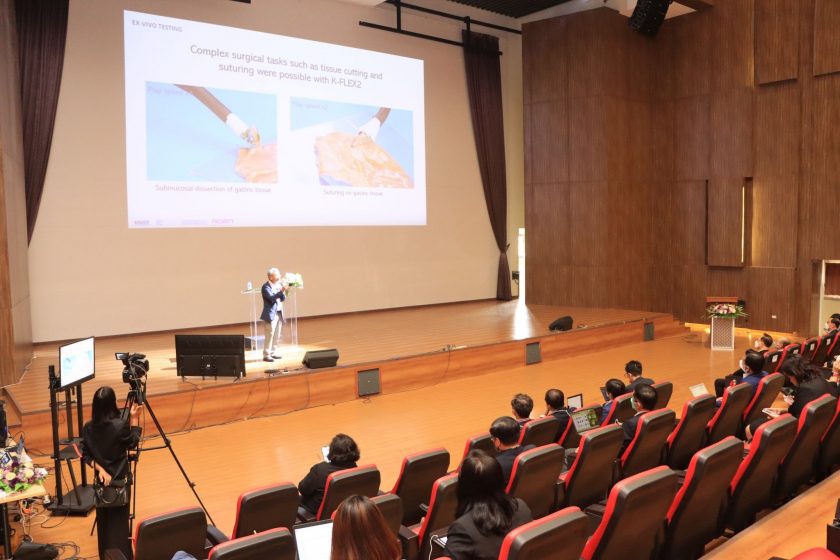
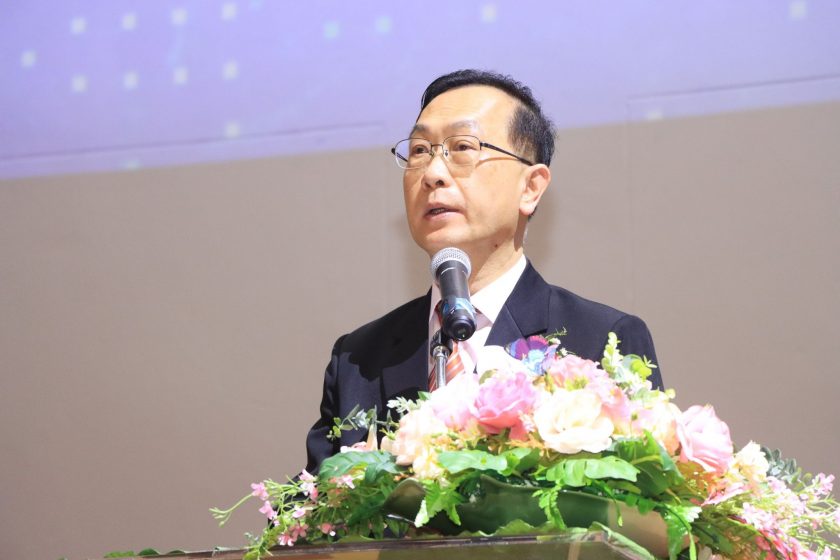
On August 25, 2022, 08:45, the President of Khon Kaen University, Associate Professor Charnchai Panthongviriyakul, MD, presided over the opening ceremony of the 18th ASIAN CONFERENCE ON COMPUTER AIDED SURGERY AND MEDICINE 2022: Digital Health Innovation.
There were international keynote speakers from world leading IT countries such as:
– Professor KWON Dong-soo, Korea Advanced Institute of Science and Technology (KAIST), President of ASIAN SOCIETY OF COMPUTER AIDED SURGERY, who lectured on “Flexible Endoscopic Surgery Robots“;
– Professor CHINZEI Kiyoyuki, National Institute of Advanced Industrial Science and Technology (NIAIST) of Japan, lectured on “Safety and cleanness considerations of robotically assisted surgical systems”;
– Professor Young Soo KIM, MD, PhD, Hanyang University, Republic of Korea, presented on “Clinical Experience of Stereotactic Neurosurgical Robot”;
- Professor Byung-Ju YI, Hanyang University, Republic of Korea, presented on “First in Human Trial of Robotic Liver Embolization”
– Professor CHUI Chee KONG, National University of Singapore (NUS), lectured on “Intelligent Cyber–physical System for Robot–assisted Drug Development”;
– Professor Jumpei ARATA, Kyushu University, Japan:, lectured on “Flexible mechanism toward medical applications”; and
- Professor Kovit KHAMPITAK, Khon Kaen University, lectured on “Surgical Robotics and Instrumentation”
There were eight as online keynote speakers from world leading IT countries:
– Professor Siyang Zuo, Tianjin University, PR China:, lectured on “Key technology of flexible robot for endoscopic surgery“;
– Professor Cao Qixin, Shanghai Jiaotong University, PR China, lectured on “Research on Ubiquitous Medical Robots Based on RTF“;
– Professor Makoto Hashizume, MD, PhD, FACS, Emeritus Professor of Kyushu University, Kitakyushu Koga Hospital, Japan, lectured on “Future Medicine based on Multidisciplinary Computational Anatomy“;
– Professor Hongen LIAO, Tsinghua University, PR China, lectured on “Intelligent Diagnostic and Therapeutic Devices for Future Medicine“;
– Professor Yoshifumi Morita, Nagoya Institute of Technology, Japan, lectured on “Testing and training device “iWakka” for adjustability for grasping force and its various applications”;
– Professor Yoshinobu Sato, Nara Institute of Science and Technology (NAIST), Japan, lectured on “Musculoskeletal medical image AI”;
– Professor Etsuko Kobayashi, The University of Tokyo, Japan, lectured on “Medical robotics and devices for minimally invasive surgery”;
– Professor Kensaku Mori, Nagoya University, Japan:, lectured on “AI for CAS – Current and Future– ”
The conference also had more than fifty research papers presented by innovators, researchers and postgraduate students from many international institutions.
There were special lectures by the President of the Royal College of Radiology (Associate Professor Wiwattana Thanomkeat, MD) and colleagues on topics such as: 1) Basic AI for Medicine; 2) AI update: Future Trend Benefit and Limitation; 3) AI in Nuclear Medicine: Cyclotron and Pet Scan; 4) AI in Community Health Care: COVID Era; 5) AI in Clinical Practice: Neuroimaging; 6) Experience of AI for Chest Radiography; 7) Computer assisted implant surgery: does it help improve the accuracy of implant position; 8) GlauCUTU: Time Until Perceived Virtual Reality Perimetry With Humphrey Field Analyzer Prediction-Based Artificial Intelligence”; and, 9) AI in Nuclear Imaging
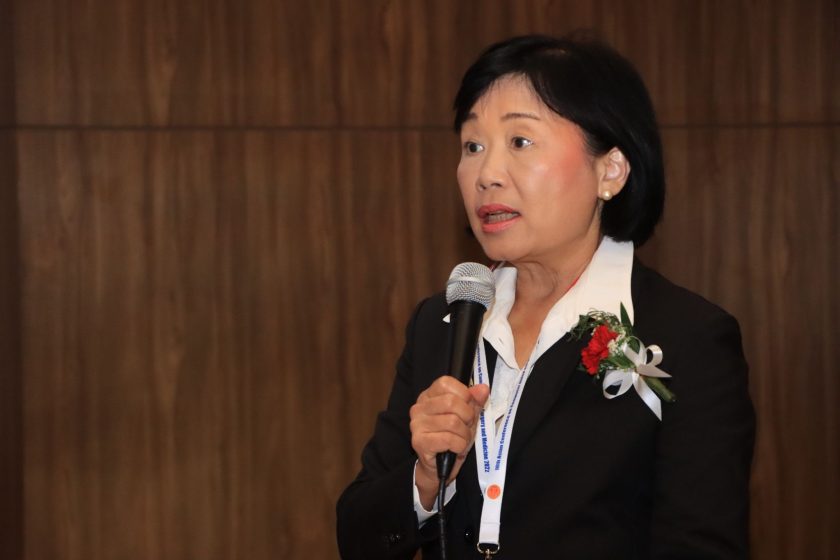
ACCAS 2022 or 18th ASIAN CONFERENCE ON COMPUTER AIDED SURGERY AND MEDICINE 2022: Digital Health Innovation. The rationale and background to this international academic conference.
During the years 2020 – 2022 the COVID-19 pandemic highlighted the great potential of telemedicine. Digital Technologies are now part of daily life for most human beings. “Biomedical Engineering” or “Computer aided medicine” or “Deep technologies in healthcare” are now completely changing the structure of medicine and medical service delivery. Traditional research processes are being re-placed by “Big Data”, and real time data processing now has a major role in medical services process, including image processing and Artificial Intelligence or AI. The Thailand Medical Council has officially announced the 21st century as the opening of the new Era of Digital Medicine in Thailand. The Asian Society of Computer Aided Surgery (ASCAS) was jointly established together with Japan Society of Computer Aided Surgery by professors of Medicine and professors of Engineering from University of Tokyo, Kyushu University, and many Universities in Asia, such as Republic of Korea, PR China, Taiwan, Hong Kong, including Thailand. ASCAS has organized this academic conference annually for 17 years now, with rotating conference hosts. Thailand previously host the conference in the year 2011 in Bangkok
For 2022, Thailand was selected to host the 18th conference again, with theme of “DIGITAL HEALTH MEDICINE” to promote digital health medicine advances in the modern era. This conference was for academic scholars in medicine, biomedical engineering, computer science, including users in primary care health stations, hospital in sub-districts, health promotion stations, medical doctors and health science personnel from the Ministry of Public Health and other Ministries, and medical schools and other relevant organizations.
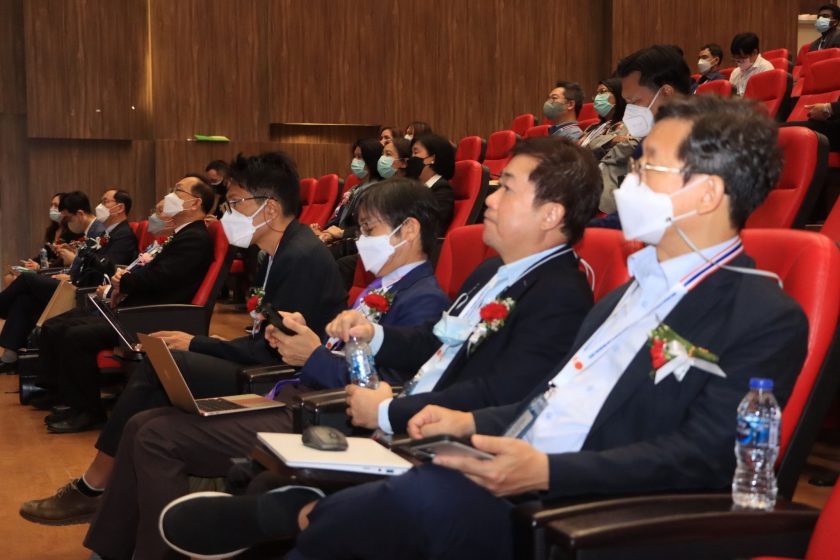
This academic conference will further promote: a) the development of Digital Medicine operationally and academically by cooperation between various research and innovation groups; b) the development of collaborative networks for future cooperation; and c) inspire and disseminate international level academic / research results on medical innovations.
Telemedicine will change all future healthcare and be widely used in conjunction with modern medicine in Thailand. Digital consultation will increase health care access for rural or regional consumers and primary health facilities to major health centers within Thai health service system.

The Organizing Committee of this Conference was Professor Mionchai Duangchinda, Vice President for Research andGraduate Studies; Professor Pewpan Maleewong, M.D, Assistant to the President; Associate Professor Apichat Juravuttipong, MD, Dean of Faculty of Medicine, Deans of Faculties; Associate Professor Supat Sinawat, MD, Director of Khon Kaen University Library; Associate Professor Wimorat Sriraj, MD, Associate Dean for Research and International Relations; Associate Professor Daris Teerakulpisut; Associate Professor Wunchana Seubwai, International Club of Nursing Department of Srinagarind Hospital.
Onsite and online participants included lecturers, researchers, postgraduate students from Japan: Osaka University, National Cancer Center Hospital East, Osaka institute of Technology, Kyoto University, Keio University, The University of Tokyo; Waseda University; Kyushu University; Kyushu University Hospital; Kobe University; Nagoya Institute of Technology; Tottori University; Yasuda Women’s University; Hiroshima City University; Tokyo Denki University; Microsoft Japan Co., Ltd; Plastic surgery, Cancer Institute Hospital; University of Yamanashi; University of Tsukuba; Nara Institute of Science and Technology; Ehime University; National Institute of Advanced Industrial Science and Technology, Korea: University of Science and Technology; Seoul National University; EasyEndo Surgical Inc.; ROEN Surgical Inc.; CUREXO, Inc.; DIGITRACK, Inc.; AIRS Inc. Robot Innovation Center; Pusan National University; Daegu Gyeongubuk Institute of Science and Technology (DGIST); Hallym University Sacred Heart Hospital; National Cancer Center; Cure-in Inc.; Medical device and Robot institute of Park; Yonsei University; Korea Advanced Institute of Science and Technology (KAIST), PR China: Tsinghua University; Beijing Institute of Technology; Biopsee (Wuhan) Medical Technology; Shanghai Jiaotong University; Nanjing University of Aeronautics and Astronautics; Pakistan: UET, Lahore, Narowal Campu; Poland: Lodz University of Technology.
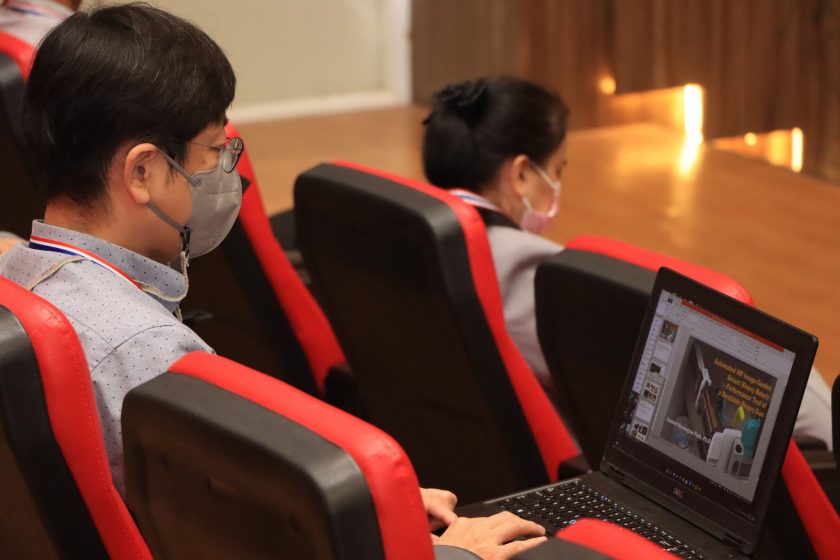
Written by Duangsamorn Chankwang
Edited by Professor John F. Smith
